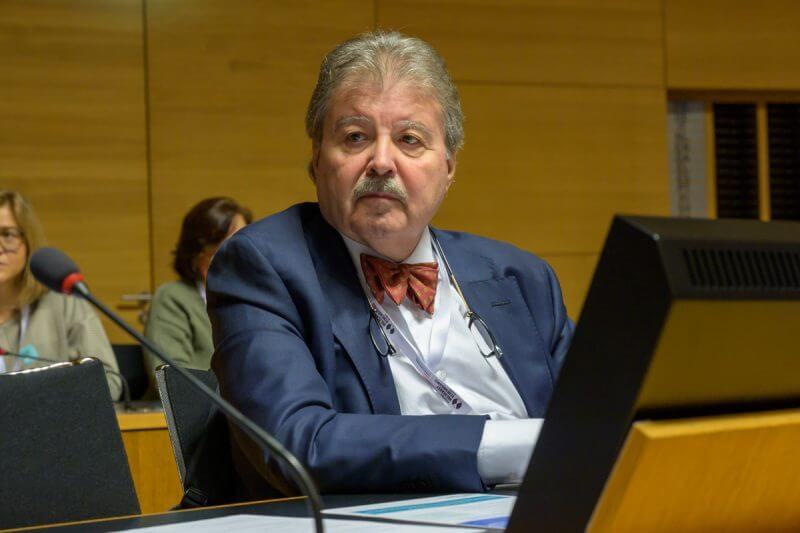
The IHRA reflects on 2020 as a historic year for Holocaust remembrance, and looks ahead to Greek Presidency in 2021, at Leipzig plenary
LEIPZIG, 08.12.2020 – The IHRA brought together over 250 delegates from all over the world at an online plenary to discuss Holocaust education, remembrance and research at the end of an historic year with landmark anniversaries that also saw a global shift to digital platforms during the pandemic.
Hosted by Germany in Leipzig, Germany’s Federal Foreign, Minister Heiko Maas, provided the welcome address, in which he explored how the pandemic has deeply affected Holocaust institutions around the world, with many now fighting for their survival, while highlighting that in many countries, the future of Holocaust education and research is now on the line.
Minister Maas called upon the 34 IHRA Member Countries to uphold their commitments to promote Holocaust education, underscoring that “Our future as democratic and inclusive societies depends on it”. He continued to explain that the IHRA can play a unique role by setting international standards in exploring new ways to commemorate the Holocaust in this new context, at the event which closed a milestone year for Holocaust remembrance.
These calls were reflected by Ambassador Michaela Küchler, who is the current IHRA Chair, representing Germany for the IHRA in 2020, a historic year. She called upon the record number of delegates to be guided by the motto, “Remembering and working in a digital context.” She also highlighted the importance of exploring innovative solutions to the challenges presented by the ongoing COVID-19 pandemic, and its worldwide effects at the three-week event, which culminated in early December.
The record number of delegates from the IHRA’s 34 Member, 1 Liaison and 7 Observer Countries, as well as the IHRA’s 8 Permanent International Partners, reflected on how remembrance events increasingly shifted online as 2020 progressed, and in particular how major international Holocaust remembrance events took place. For example, many remarked on how the 75th anniversary of the liberation of Auschwitz-Birkenau (27 January 1945) and the 20th anniversary of the IHRA’s formation had been marked at an international ministerial meeting in Brussels in January, whereas the events to commemorate the end of the Second World War and the genocide of the Roma (2 August) were held virtually.
The issue of digital Holocaust education, its opportunities as well as the challenges it presents, featured prominently in the Education Working Group meetings. The IHRA’s decision-making body, the Plenary, was provided with a report by the Museums and Memorials Working Group on how to support Holocaust-related institutions, many of which are at risk of permanent closure because of the pandemic.
The Leipzig plenary meetings’ digital format also encouraged further participation beyond the IHRA community. A senior representative of the International Council of Museums (ICOM) discussed the impact of COVID-19 on museums and memorial sites, helping inform the report provided to the Plenary. The Plenary Session also featured an impulse lecture by Nico Nolden from the University of Hannover, who spoke on the representation of the Holocaust and the Second World War in digital games.
Special features and events also included an online production by Theaterverein K on the Kroch family of Leipzig, and an online screening of “Voices for a Better World: The Legacy of Testimony,” a film commissioned by the German Presidency of the IHRA based on oral history interviews by the Association of Jewish Refugees. Other recorded video messages included those from directors of museums and sites around Leipzig, as well as musical pieces from composers like Erik Satie, performed at various sites across Leipzig.
Next year’s plenary meetings will be hosted by the Greek Presidency, with Swedish and Croatian Presidencies to follow in 2022 and 2023 respectively.
—
About the IHRA
The International Holocaust Remembrance Alliance unites governments and experts to strengthen, advance and promote Holocaust education, research and remembrance and to uphold the commitments to the 2000 Stockholm Declaration and the 2020 IHRA Ministerial Declaration.


